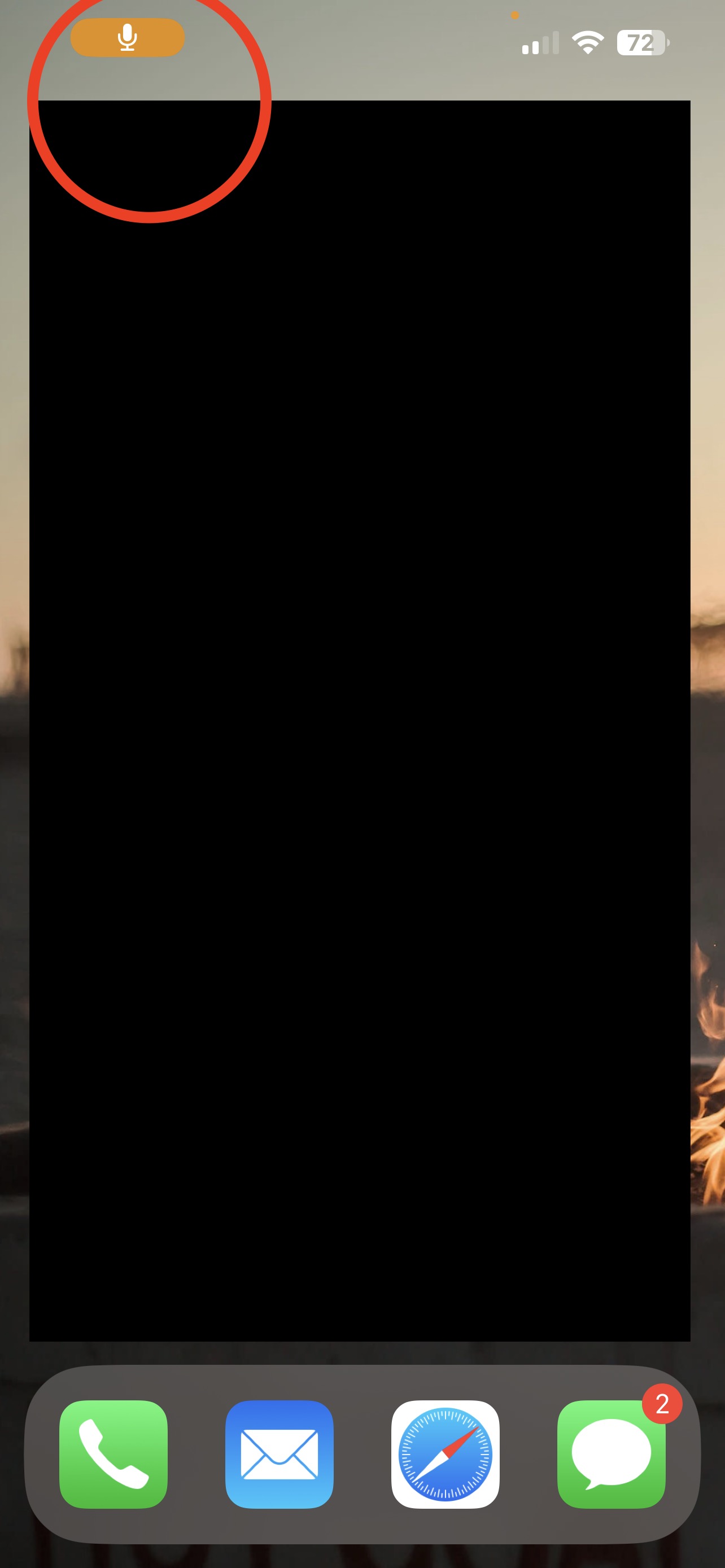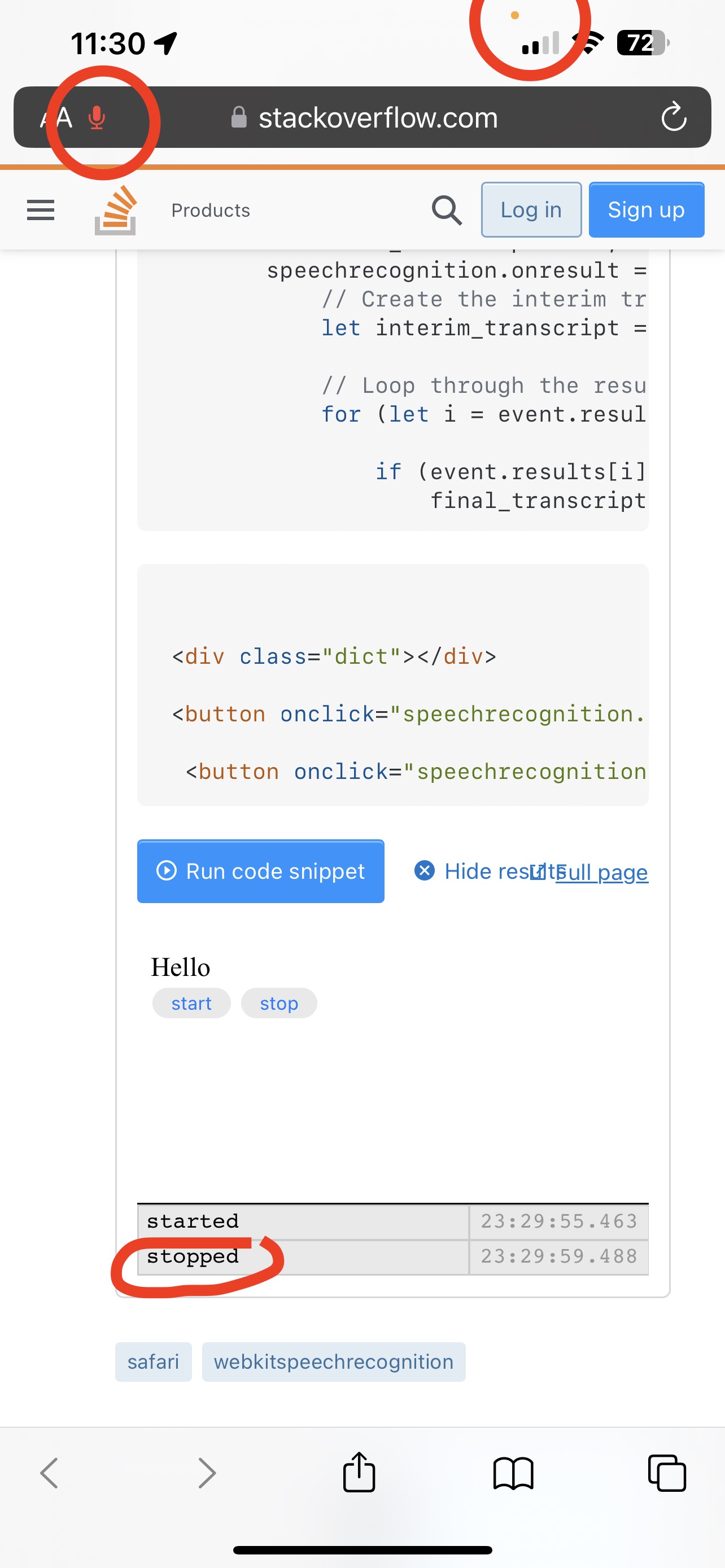I am trying to use webkitSpeechRecognition with the continuous setting set to false (when the user stops speaking, webkitSpeechRecognition auto stops) but when I stop speaking and the webkitSpeechRecognition stops, when using Safari iOS and macOS still show that the microphone is still listening. If I manually start it and stop it, I don't have this problem.
In order to get Safari to recognize that the microphone is no longer listening, I have to start and manually stop webkitSpeechRecognition again.
EDIT: The microphone is actually listening and inputting text even after the .onend event occurs. Essentially Safari is not actually ending on .onspeechend - am I doing something wrong or is this a bug? It only occurs on Safari, not Chrome. Please see example, text will still be inputted even after it says stopped.
Am I doing something wrong? Is there a workaround to this?
let speechrecognition;
if ("webkitSpeechRecognition" in window) {
// set microphone to show
speechrecognition = new webkitSpeechRecognition();
// stop listening after the user stops speaking or it can keep listening until the user stops
speechrecognition.continuous = false;
// interim results along with the final results
speechrecognition.interimResults = true;
speechrecognition.onstart = () => {
console.log ("started");
};
speechrecognition.onend = () => {
console.log ("stopped");
};
let final_transcript = "";
speechrecognition.onresult = (event) => {
// Create the interim transcript string locally because we don't want it to persist like final transcript
let interim_transcript = "";
// Loop through the results from the speech recognition object.
for (let i = event.resultIndex; i < event.results.length; ++i) {
if (event.results[i].isFinal) {
final_transcript += event.results[i][0].transcript;
document.getElementsByClassName("dict")[0].innerHTML = final_transcript;
} else {
interim_transcript += event.results[i][0].transcript;
document.getElementsByClassName("dict")[0].innerHTML = interim_transcript;
}
}
final_transcript = "";
};
}
<div class="dict"></div>
<button onclick="speechrecognition.start();">start</button>
<button onclick="speechrecognition.stop();">stop</button>

